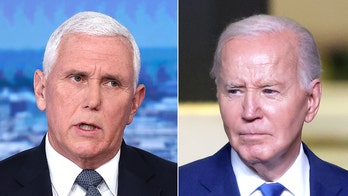Babies who can't even count yet have a nasty surprise coming once they start working and paying taxes.
If no changes are made in entitlements such as Medicare, younger taxpayers will have to cover unfunded promises of $35 trillion.
That means future generations, unless lawmakers can break the gridlock and agree to entitlement reform soon, will see massive tax hikes, massive benefit cuts -- or both. Sacrifice will be required either way, but analysts say the pain is greater the longer lawmakers wait.
"We are unwilling to cover those costs right now and therefore we're saying to our kids and grandkids -- we don't want to pay for it. We're going to have you do it," said Maya MacGuineas of the Committee for a Responsible Federal Budget.
John Goodman of the National Center for Policy Analysis agrees. "Looking to the future, a young person has to realize his taxes are going to increase enormously or the benefits will be cut enormously or we just go broke."
How much would taxes have to go up to cover promised benefits?
The Congressional Budget Office examined the issue and found young Americans could face staggering tax increases in decades to come.
The CBO reported that in order to keep entitlement benefits where they are, taxes would have to increase by 48 percent in 2030, and by a whopping 86 percent in 2050.
That would drive the top rate to more than 73 percent, the highest since 1980.
Corporate rates would also have to increase from 35 to 65 percent.
Charles Blahous, a trustee of Social Security and Medicare, said "it's clear you do have to make some type of explicit tax increase, if you don't change the benefits of those programs specifically."
That is why the CBO wrote that without those additional revenues, the cost of entitlements "will increase federal debt to unsupportable levels."
Advocates for entitlement programs, however, say Americans reject any changes to benefits.
Alex Lawson, of "Social Security Works," said "we represent the view that's held by the vast majority of Americans, independents, Republicans, Democrats. And they say absolutely no benefit cuts to Social Security or Medicare or Medicaid."
Lawson argues ways can be found to reduce health care costs, though that's unlikely to make up a $35 trillion shortfall.
"But that's where we want to focus," he said. "We don't want to cut people's earned benefits, we don't want to take ... what they've earned, what they've paid into their whole lives."
But some lawmakers point out the nation is undergoing a massive shift of resources from the young, even the unborn, to a growing body of seniors, who are living longer and longer.
"Right now, for every dollar we spend on the young people, we are spending $4 on seniors," Tennessee Republican Sen. Bob Corker told "Fox News Sunday." "Right now, in Medicare, the average person pays for one-third of the cost of the Medicare program."
The rest comes from taxpayers.
"So we're paying a greater share of Medicare benefits than we ever intended," MacGuineas said. "And right now we have no plan and no ability to pay for all the promises looking down the road."
And the longer the nation waits to fix entitlements, the more painful the fixes will have to be.
Blahous said "we're already very much late in the game" in terms of finding solutions that are workable and not too onerous.
"With too much further delay," he said, "I don't care whether you are on the left or the right, you're not going to be able to swallow the solution."
In fact, by 2025, entitlement spending such as Medicare and Medicaid would soak up every last tax dollar, leaving no money for any other function of government -- leaving the government to keep borrowing to make up the difference.




